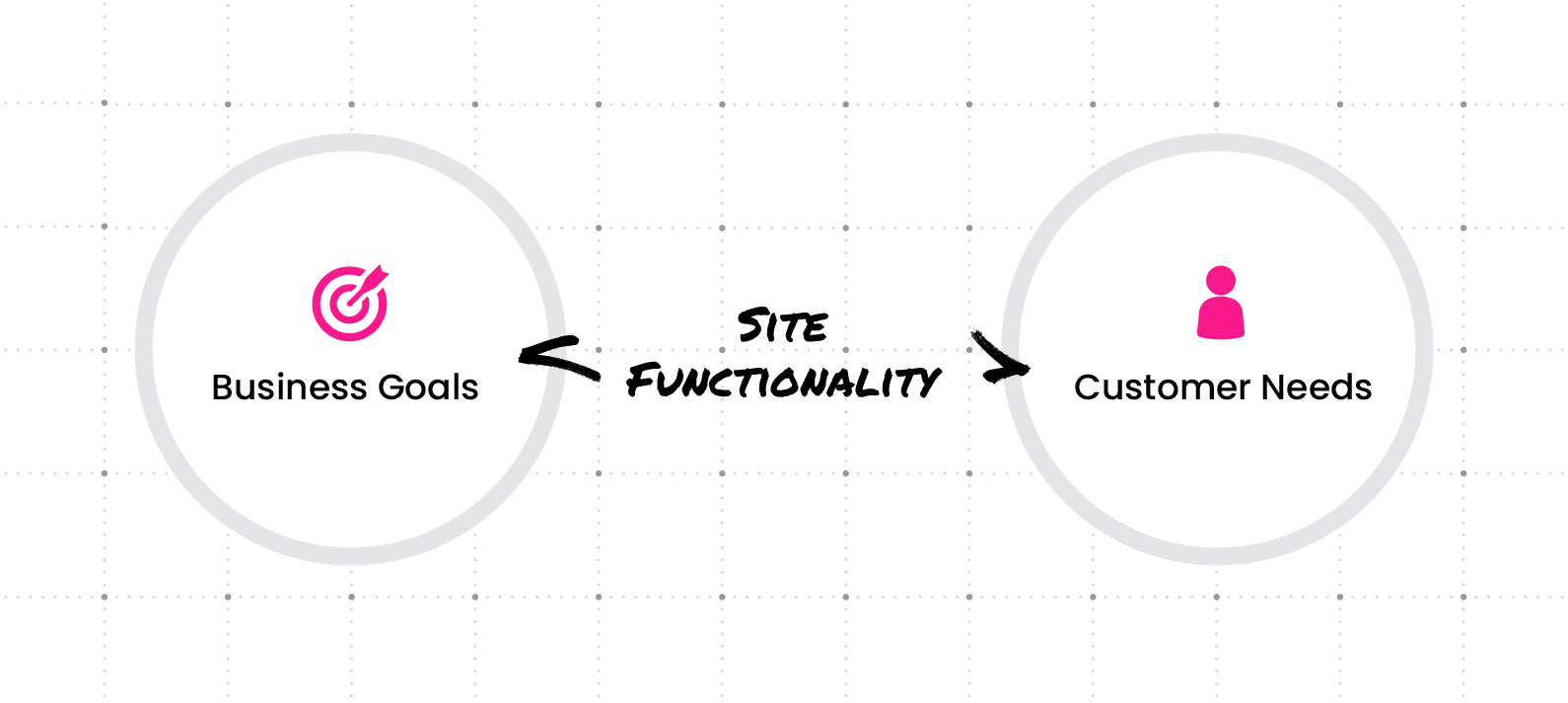Before changing your approach, you need to ensure every aspect of your marketing is heading in the right direction.
The B2B tech sector is built on change. With new technologies and competitors constantly entering the marketplace, you have to ensure your company’s digital strategy performs at the highest level. However, if your business has slowed or you’ve begun questioning your marketing approach, you need to act quickly to support what your B2B company needs.
Your ability to respond to market shifts or changes to your company’s offerings is especially important if you’re recently been hired as a new CMO or marketing leader for your company. The future of your business depends on finding the right way forward. But where do you start?
Before changing your approach, you need to ensure every aspect of your marketing is heading in the right direction. Whether you suspect your company needs a new website, brand, or strategy, you need to develop the full picture of where your B2B currently stands.
How to Take Stock of Your B2B Company’s Digital Strategy
A rebrand is often the first step for a newly hired CMO. Maybe your company is no longer seeing the same rate of growth and is considering a shift in positioning. Or maybe you’re concerned that your brand is no longer connecting with the right audience as the marketplace has evolved.
However, even if your organization isn’t planning a big change, you should review the elements of your digital strategy every few years. After all, the industry moves fast. Taking stock of these details allows you to identify your company’s strengths, weaknesses, and new opportunities for improvement.
5 Areas of a B2B’s Marketing Strategy a New CMO Should Audit
Auditing your marketing strategy enables you to make informed decisions aligned with your business goals. That way, when you approach your leadership team with strategic recommendations, you have the data you need to support your conclusions. Plus, you can gain vital information about how well the website is functioning in support of your efforts to engage with customers and generate leads.
Audit the following 5 areas of your marketing need to choose what aspect of your marketing needs optimization going forward.
1. Website Audit
A comprehensive website audit will analyze your site’s overall performance, usability, and conversion potential. Your site’s design should provide an intuitive user experience as well as navigation and functionality that connects with your audience. Ask yourself — can your users quickly find what they need while moving through your site in a way that serves your goals?

You should evaluate the clarity of your messaging as well as your CTAs and contact forms to ensure they’re optimized and deliver the customers your business needs. Resource centers, product demos, and gated assets offer more ways to increase your site’s lead-gen capabilities.
2. Brand Audit
Your company can’t be competitive without a recognizable and trustworthy brand. You should regularly assess the consistency of brand elements such as logos, colors, typography, and messaging across all digital touchpoints.

Your company may have a style guide, but it’s better to review live examples in use across your marketing channels. This is because style guides are frequently out of date, and they often reflect your visual identity in theory rather than reality. All visual elements as well as the voice and tone of your communications must be aligned. That way, your company will form a bond with users looking to understand who you are and why they should trust your company.
3. Competitive Audit
In our digital, remote-friendly economy, you face more competition than ever. Along with competing with the new and current B2B companies in your region, larger brands often enter new markets given that geography is no longer an issue. You need to ensure your brand and its website continue to stand apart from the biggest names in your industry as well as the newest.
When you’re working with the right design partner to assess your brand, you’ll be asked to identify three to five firms you see as your direct competitors. Even if a company isn’t a competitor, firms with comparable offerings offer real guidance for your brand.

You should assess your competitors’ digital presentation, including their website content, social media pages, and conversion strategies. Does your brand still stand out? When properly applied, a competitive audit maps out what works, what doesn’t, and what hasn’t been explored in your industry.
4. KPI Audit
The metrics you track enable you to make adjustments that will deliver better performance. You should review your team’s processes for tracking digital marketing performance and ensure your marketing strategy is delivering results. The right KPIs for your business may vary, but website metrics such as time-on-site, conversion rate, and pageviews-per-visit provide a valuable window into your company’s success.

Google PageRank, keyword rankings, and conversions from organic traffic offer additional insights to evaluate your SEO performance. If you’re considering a website design for your B2B, KPI metrics offer a valuable benchmark for your new site. Along with pointing out what needs improvement, benchmarking allows you to keep and enhance what’s already working.
5. User Journey Audit
How well your audience progresses through a customer journey on your site greatly influences your conversion rates. For B2B customers, your website must attract and serve multiple buyer personas with differing priorities and interests.
Revisit all your brand’s buyer personas to ensure that your website and its content resonate with the right audiences. Plus, you should map out the touchpoints where your prospects interact with your brand. Taking a close look at your user journeys will identify areas for improvement as well as opportunities to enhance the user experience through more targeted content.
Consult the Experts to Audit Your B2B Marketing Strategy
Auditing these aspects of your marketing enables you to address your brand perception, your website performance, and changes to the competitive landscape. Plus, you can gain vital information about your brand’s connection with customers.
If auditing all these details sounds daunting, you don’t have to do it alone. At Clear Digital, we conduct discovery projects to assess these details about your brand and identify a way forward. We can look at your marketing strategy and identify the areas that will make an impact on your business goals. If you’re uncertain where to begin, we should get started.






